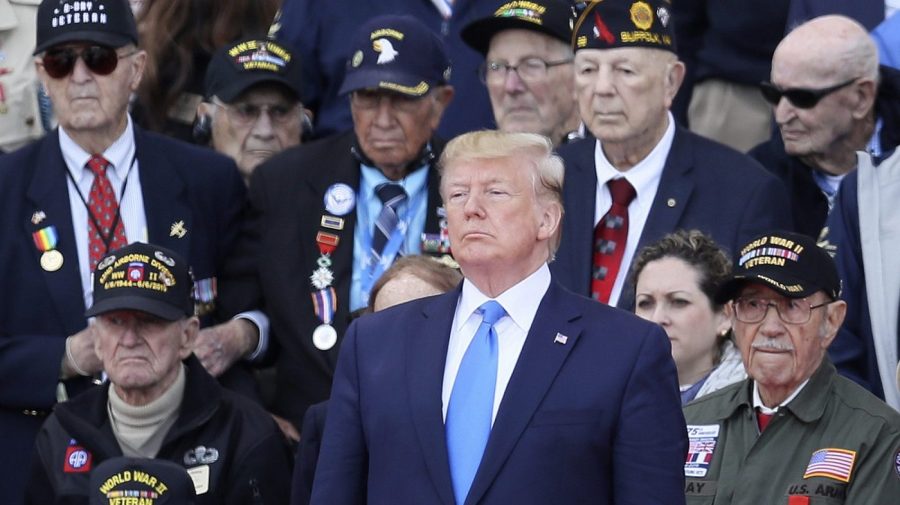
President-elect Donald Trump has stated on numerous occasions that the U.S. military, after a good first 170 years or so, has largely forgotten how to win wars since 1945. This claim is part of his rationalization for choosing Army veteran and Fox News host Pete Hegseth, who has claimed that America’s armed forces have been emasculated and weakened by “wokeness,” to lead the Pentagon.
Is Trump right to believe that we as a nation, and our military institution in particular, no longer know how to win? There is some kernel of truth behind Trump’s claim. In big wars since 1945, America basically has a record of 1-2-2.
The U.S. military, with coalition partners, won a decisive victory in Operation Desert Storm in 1991, right after the Reagan defense buildup. But that was the exception in our large-scale conflicts since World War II. We fought to something like tie or stalemate in Korea from 1950 to 1953 and, more recently, in Iraq since 2003. And of course the U.S. suffered overall military defeats in Vietnam and Afghanistan — even though it arguably achieved some of its larger strategic goals, like pushing back against Communist expansionism and terrorism, in those otherwise ill-fated conflicts.
Moreover, it is fair to say that the U.S. military had a major role in some of our biggest setbacks. Gen. Douglas MacArthur botched the invasion of North Korea in the fall of 1950, after a brilliant landing at Inchon turned the tide of that war. In Vietnam, Gen. William Westmoreland and Gen. LeMay among others supported the massive and sometimes careless use of firepower that proved counterproductive (those cases presumably took place well before “wokeness” afflicted the military). Special forces performed badly in the Iran hostage rescue attempt in 1980; poor rules of engagement and poor force protection allowed a huge tragedy with the Marine barracks bombing in Lebanon in 1983; mission creep and sloppy tactical procedures led to the “Black Hawk down” episode in Somalia in 1993.
However, on balance, Trump’s claim does not hold water. Since the Reagan defense buildup and Goldwater-Nichols-Nunn reforms of the 1980s, the American armed forces have been the best in the world. Trump himself deserves some of the credit for the generally solid state of our military today, as well as one of its most recent wins — the decisive defeat of ISIS in Iraq and Syria from 2014 through 2018 or so. Before developing his second-term agenda for military modernization and reform, with or without Hegseth by his side, Trump should consider the larger historical record.
First, the U.S. did indeed win decisively in Operation Desert Storm in 1991, where it quickly expelled Iraqi forces from Kuwait under the leadership of Gen. Colin Powell and Gen. Norman Schwarzkopf. On a smaller but still significant scale, the U.S. overthrew the dictator Manuel Noriega in Panama 1989. With NATO allies, it won the Kosovo war in 1999, driving Serbian strongman Slobodan Milosevic’s marauding militias out of the territory while suffering only two fatalities.
Second, successes continued in the 21st century, even in light of the mediocre outcome in Iraq and the eventual loss to the Taliban in Afghanistan. With partners and allies as well as the CIA, the military defeated the Taliban in Afghanistan in 2001 and rapidly overthrew Saddam in Iraq in 2003. America decimated al Qaeda’s leadership, as well as much of its rank and file, throughout much of the Middle East and South Asia in the decade after the 9/11 attacks, culminating in the killing of Osama bin Laden in Pakistan in 2011. Trump himself authorized the surgical killing of Iranian terror mastermind Qassem Soleimani in Iraq in 2020.
Third, the surge in Iraq in 2007 and 2008, designed and implemented under Gen. David Petraeus, was one of the greatest comebacks in U.S. military history.
Fourth, as in Vietnam, the mistakes made in Iraq and Afghanistan were mostly the result of civilian decisions. President George W. Bush and Secretary of Defense Donald Rumsfeld sent us to war in Iraq in 2003 with too small a force and no serious plan for stabilization once Saddam was gone. Amb. Paul Bremer, given only weeks’ warning that he would have the job of running post-Saddam Iraq, issued counterproductive edicts that punished too many Sunni Baathists and fired Saddam’s soldiers, contributing to the rapid growth of the insurgency.
Bush and Rumsfeld attempted a “light footprint” in Afghanistan from 2001 to 2008, giving the Taliban room to recover and rebuild; President Barack Obama then tried a belated surge that ramped up and ramped down too fast, as he tried to achieve a miracle to make up for lost time the decade before. Then Trump and Biden pulled us out of Afghanistan — to my mind, unnecessarily and badly — in 2020 and 2021.
We should not blame the military when we ask it to do the near-impossible and provide bad or conflicting guidance on how it should pursue its missions.
Trump’s allegations are unpersuasive. We have a very fine military that has also successfully deterred war in Europe and East Asia for decades. There is always room for improvement, but there is not a case for a massive overhaul.
Michael O’Hanlon is the Phil Knight Chair in Defense and Strategy at the Brookings Institution and author of “Military History for the Modern Strategist: America’s Major Wars Since 1861.”

